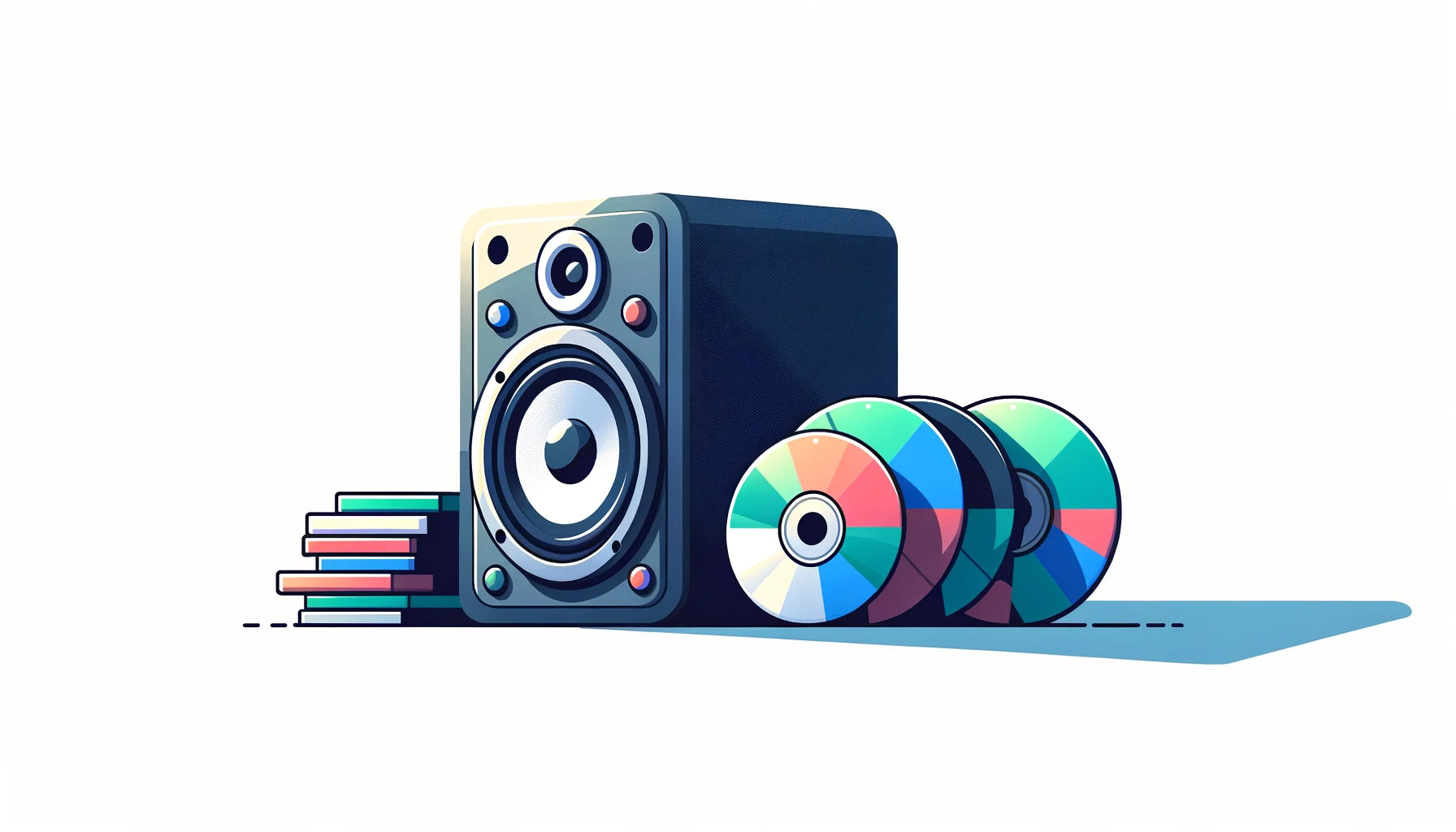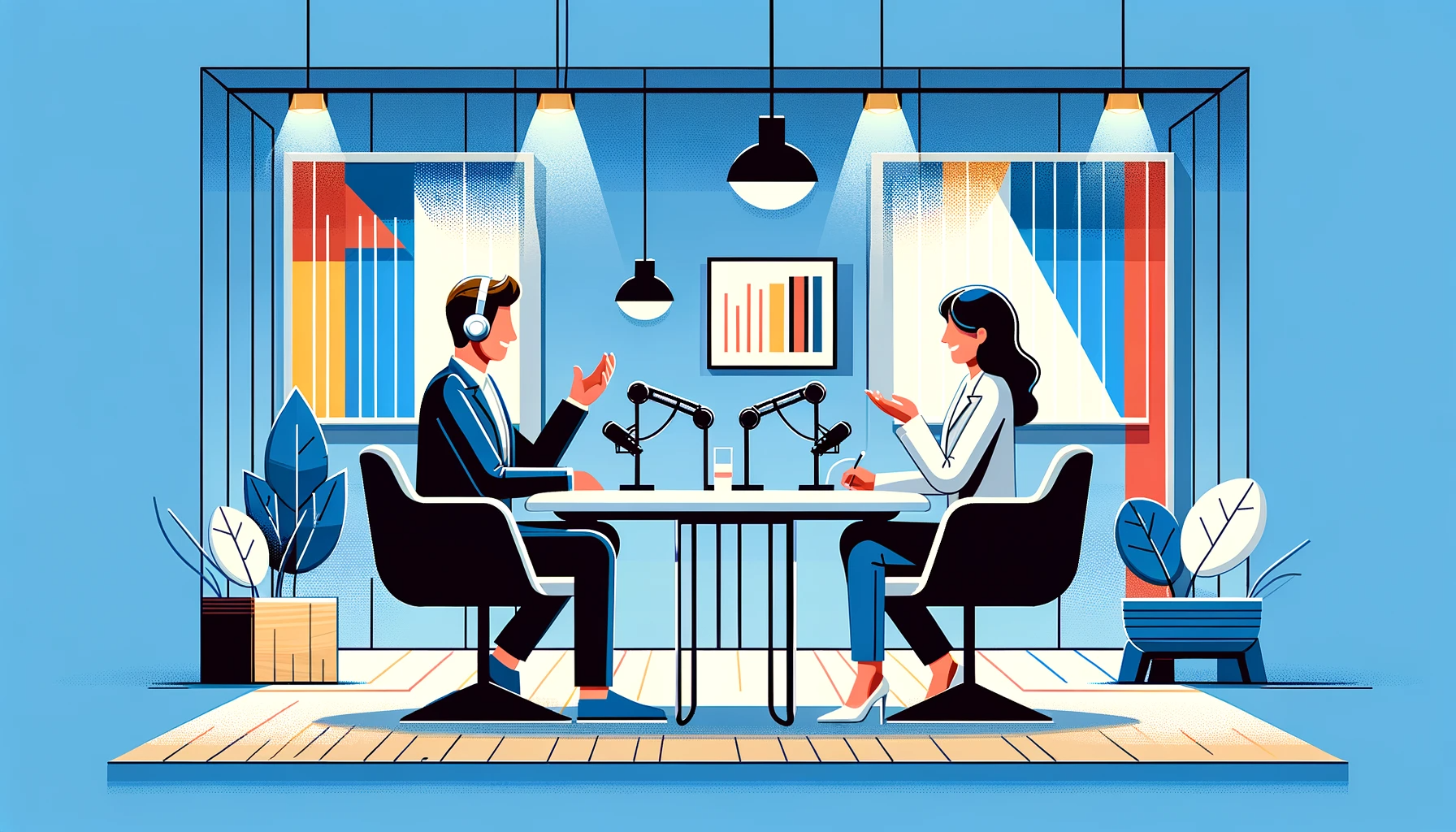Radio/Audio Drama Ideas - With Examples and Resources
Planning to produce a radio drama or audio drama? Here are the some tips you can use to script your show!

Are you planning to produce a radio drama or audio drama for your podcast show?
This guide covers essential topics a beginner should know. We’ll cover:
● What is a radio drama?
● Which unique features and characteristics does it have?
● Past and future of radio dramas
● Tips on writing a radio/audio drama script
● Producing a radio drama
● 10 ideas for audio and radio dramas with examples
So if you’re all in, let’s dive straight in.
Chapter 1: Introduction to Radio Dramas
Audio dramas are experiencing a resurgence in popularity as the ear delights gradually win over podcast listeners.
With sound elements only, the audio dramas evoke real-life scenes in the theatre of the mind. Listeners recreate characters in their own image and visualize their actions, akin to enjoying a good novel. The possibilities are limitless.
In this first chapter, we are looking at the fundamentals of radio dramas. So let’s get started.
What is a radio drama?
A radio drama is a performance of fictional work distributed on the radio. It’s entirely acoustic-based with no visual components. Audiences understand what is happening through dialogue, sound effects, and music. They give the story form by visualizing the settings and characters.
Audio dramas may be fictional works written explicitly for radio broadcasting or podcasting. Alternatively, they may be adapted from theatre plays, novels, short stories, etc.
Now, there’s often a need to write audio dramas specifically for radio because theatre plays rely on what the audience can see on stage.
Unique Characteristics of Radio Dramas Compared to Theatre Plays
Here are some unique characteristics of audio dramas, which make them unique compared to theatre plays:
● Audio dramas are entirely dependent on sound (sound effects, music tracks, and dialogue) to convey emotions, ideas, and action;
● Sound effects and thematic music convey the setting, which may be anywhere from outer space to the inner depths of the earth;
● There is no stage management involved, such as lighting cues, prop usage, costume changes, or managing entrances;
● Through dialogue, actors tell the audience what’s happening and what they are doing. For instance, announcing the arrival of a new character, they may say, “So you’re here.”
● While radio plays are sometimes broadcasted live, they are often recorded and aired at another time;
● Radio plays are well suited where the setting and character actions are limited;
● There’s no need for actors to learn their lines as they can directly read from the script during recording sessions. While this is true, they still have to study the play to learn how to speak like their characters or to know the sequence of events;
● Radio drama scenes often feature a small number of cast members, as it may be quite difficult for listeners to distinguish between characters if they’re too many. It’s also quite easy for them to forget if the character is still active in the scene if they go for an extended time without speaking;
● Actors don’t use actions, gestures, or facial expressions but only rely on the voice as the audience cannot see them.
Orson Welles War of the Worlds - The Most Famous Radio Drama
Broadcasted on October 30th, 1938, The War of the Worlds went down in history as one of the most famous radio dramas. For the production, Orson Welles’ Mercury Theatre Company adapted H.G. Well’s serialized science-fiction novel published in the 1890s. The show kicked off at 8 p.m. during prime time, with millions tuned in across the United States.
It was formatted as a news bulletin. The presenter began by taking listeners to the Meridian Room at Hotel Park Plaza to be entertained by Ramon Raquello and his Orchestra.
The dance music was interrupted by an alarming announcement that Professor Farrell from the Mount Jenning Observatory had witnessed explosions on Mars. The music resumed playing before another bulletin announced that a meteor had crashed into a farmer’s field. Emerging from the crashed metal capsule was a bear-sized glistering Martian with tentacles.
The aliens began arbitrating puny humans on mounted Martian war machines, which terrified the unaware listeners. The realistic performance and the fact that some fell for it cemented the audio drama’s notoriety and position in history. And you just have to hear it to enjoy it too:
Radio Drama - A Quick Review of the History
● Radio dramas emerged with the introduction of the théâtrophone in 1881 by Clément Ader. It was a telephonic transmission system that allowed users to listen to theatre and opera performances over phone lines.
● The first English-language radio drama was a brief sketch specially produced for Pittsburgh’s KDKA Radio in 1921.
● A Comedy of Danger by Richard Hughes, Recorded in England in 1924, was the first BBC commissioned radio drama.
● The most famous radio drama was War of the Worlds that aired on October 30th, 1938.
● During the golden age of radio, most radio dramas were live shows owing to the poor sound quality of recorded programs. The magnetic era, beginning from 1945, saw a leap in audio fidelity, allowing the recording of radio programs.
● Increased priority for the production of TV programs saw a decline in the production of radio dramas for many networks around the world. Producing radio dramas did not come cheap as networks needed to pay for studio recording time, scriptwriters, and directors.
● The Archers is the world’s longest-running radio drama series beginning its national run on 1st January 1951.
● While there has been a decline in the production of radio dramas in the US, the BBC continues to produce radio plays every year. In the Philippines, “This Is My Fate” has remained on-air since 1973.
The Re-Birth of Audio Dramas
Radio dramas have had a new lease of life with the emergence of audio dramas distributed digitally as on-demand podcasts. Many listeners are discovering fictional audio dramas for the first time, finding the format to be as appealing as it was 100 years ago. Podcasts have also made it possible for anyone around the globe to write and produce their own audio dramas, even with a limited cast.
The fictional podcast niche is on the rise, and already, there have been great hits, such as Limetown, a fictional story about the disappearance of over 300 people. It follows the story of Lia, a journalist who decides to investigate the vanishings when no one is bothered to look. Limetown’s popularity saw it transition to a TV series. There are more examples of modern audio dramas, including Alice Isn’t Dead, Wolf 359, The Magnus Archives, Within the Wires, and Night Vale.
Chapter 2: Producing a radio drama
So how do you start producing an audio drama? Well, the first piece of advice is getting your hands on past radio dramas and fictional podcasts. You need to listen to them noting what you like. Which sound effects did they use? Did you find the acting or plot structure appealing? Did you warm up to the multi-dimensional characters? And so on.
You can even listen to your favorite productions multiple times to uncover their secrets. It’s also important to study radio dramas that you don’t like, looking for mistakes you can avoid repeating.
Now, in this chapter we will briefly touch on the structure of audio dramas and share up to 10 tips that you can use to write your own radio drama script:
Structure, Format, and Length of Audio Dramas
Audio dramas follow a basic structure. They have a beginning, middle, and end. Depending on the length, the audio drama may have a series of subplots, smaller stories within the plot’s main events. You can employ the long-standing dramatic structure that involves exposition, conflict, rising action, climax, falling action, and resolution. For instance, during the exposition at the beginning of the play, it’s expedient to introduce the Who, What, and Where. Audio dramas will also include similar elements to stage drama such as plot, character, theme, pace, tension, dialogue, and genre.
Now, before you start thinking of the sound effects, you will need to write the script depending on the genre. If you’re writing the script for public or commercial radio stations, it should comply with FCC guidelines or other territorial broadcast guidelines that vary with the country.
Are you planning to produce a radio drama or audio drama for your podcast show? Performances may last from 20 minutes to 90 minutes. How many pages will you need to write? One page may give you anywhere from 1 minute to 1.15 minutes. So, 60 pages of material may translate to a 60 to 75-minute show.
Once you’re happy with the script, the next process may entail finding actors and conducting rehearsals. You may need to have trial runs with rough recordings and create Foley sound effects. While you can do the recording remotely, it’s better to have a group session.
If possible, you can reduce the need for narration. Instead, have characters create the storyline, setting, and action from dialogue alone. For a great example of how to do this, you can listen to The Unexpected Guest by Agatha Christie, a 1958 BBC play.
10 Tips to Use to Script a Radio Drama
You can use the following tips to enhance your audio drama scripts and make the creative process much easier:
-
Make your purpose clear: Set clear intentions when it comes to the audience and what you want to achieve. Is your audio drama out to convey a message, teach, educate or entertain?
-
Know your audience: You should have some insights into the potential audience for your audio drama. What shows do they like? Which issues do they resonate with?
-
Use sounds and dialogue to introduce visual elements subtlely: Characters should not explicitly mention what they’re seeing, but you can find certain ways of introducing visual elements. For instance, you can distinguish between different magical creatures by having different sound effects for each, such as the heavy flapping of wings to denote the arrival of a dragon or the quick flutter of wings for a fairy.
-
Have a few characters with distinct voices and mannerisms: Listeners can’t tell apart characters if they become too many or too similar. Apart from making characters sound distinct, think of other mannerisms that distinguish people, such as the words they love repeating, breathing patterns, stutters, etc. You can have up to six key characters, and it’s still possible to have a doubling of roles, where someone may fill for minor roles rather than hiring more characters.
-
Use dialogue to give context to sounds: While you should use sound effects, remember that it’s only through dialogue that you can give proper context to various sounds. For instance, the heavy flapping of a bird’s wings may belong to a vulture keen on scavenging on a rotting corpse or an eagle scooping a squirrel from the barren earth.
-
Make the dialogue sound a bit natural: The dialogue needs to come off as natural, which may be hard to achieve with written prose. That’s because people don’t always talk in coherent sentences or follow a consistent line of thought. They don’t explicitly mention what they’re planning to do. For instance, a character may not say, “Let’s prepare dinner,” but rather, “Let’s grill the chicken.” Words used by the character also tell us about the background; for instance, a professor may have a formal way of speaking compared to a casual laborer. It’s the little nuances that make for a believable audio drama.
-
Vary the pace: The radio drama should have parts with a lot of action and slow scenes where the story develops. You can introduce pace and rhythm with short and long scenes.
-
Hook them from the start: Listeners may have incredibly short attention spans. It’s quite important to get to the heart of the action as soon as possible and avoid spending too much time on exposition. In the Unexpected Guest, the play begins with a man knocking at the door. He explains that he has unexpectedly run his car into a ditch. Moments later, we find out that the woman in the house has shot someone.
-
Introduce high-stakes to keep the listener glued: While it’s important to hook the listener from the start, it’s also important to introduce high-stakes as soon as possible to keep listeners listening for the resolution. Each scene should build on the tension. You also need to have plot twists and surprises for a more entertaining show.
Chapter 3: Radio Drama Ideas
in this chapter, we’ll go over some radio drama and audio drama ideas. We’ll examine popular genres and provide examples. You can use the following ideas to figure out what to write about or produce. Let’s get going:
9 Radio/Audio Drama Ideas
1. Full-cast hilarious musicals
There will be no dancing that the listener can see, but they will certainly hear the singing. Songs, dialogue, and other sound effects will be interwoven into the narrative.
Examples:
● Esther Destined and Redeemed Full Audio Drama Musical - YouTube
2. Narrative Drama
One or more performers speak directly to the listeners to tell the story or comment about actions in the scene. A performer who is not involved in the story may also describe what is happening. The narrator serves as the audience’s seeing eye in an otherwise blind medium.
Examples of audio dramas with narrators:
● The Will of the Woods - Episode 1 [Fantasy Audio Drama]
● Star Wars: A New Hope Radio Drama
3. Short-form Fiction/Short Stories
You can also think of producing short-form fiction for your audio dramas. Think of it as a story that can be finished in one sitting or episode. Short stories have few characters and scenes as they focus on single incidents.
Examples of short-story audio dramas
● Personal Call & Butter in a Lordly Dish
4. Serialized Stories with Continuous Narratives
To execute this audio drama idea, you’ll need to publish your story in regular episodes. You don’t have to produce everything right away. The key to having a great serialized story is maintaining a regular publishing schedule and creating memorable characters. You should always leave the listeners eager for the next episode. Some fictional podcasts in this format include:
Examples
5. Adapted Novels
If you have access to an unfilmable novel, you could very well turn it into an audio drama. With sound effects and dialogue alone, you can literally have any setting and have characters perform any action without the need for pre-planned sets or stunts. Many novels have also been adapted to radio and audio dramas.
Here are examples of adapted novels to audio drama:
● 2020: Gethsemane | A Full-Length Audio Drama
● Indiana Jones and the Well Of Life Audio Drama
Additional ideas for radio drama include:
6. Radio Sitcoms
7. Science Fiction audio dramas
8. Fictional Paranormal Dramas
9. Horror Audio Dramas
Bottom Line
Audio dramas can enhance the content on your radio station or may spin-off to independent podcast series. Now, don’t fall into the trap of thinking that you’ll get better with writing. You need to spend enough time listening to past works. Get a feeling of what makes an audio drama great.


